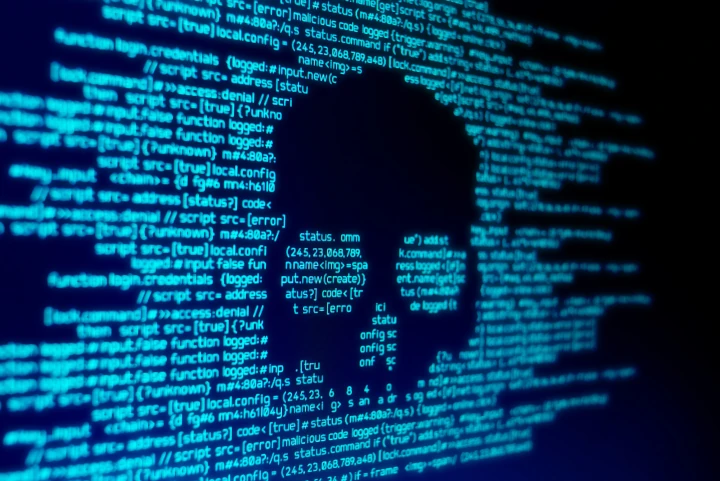The internet witnesses a lot of cyber attacks every day, with 43% targeting small businesses.
Cyber attacks are increasingly common and in the age of technology, there’s no stopping them. A cyber attack can happen for many reasons and anyone is a possible target.
That doesn’t mean you have to live your digital life in fear though. There are steps you can take to protect your data so if someone tries to initiate a cyber attack, they’re left disappointed with a lack of results.
Let’s look at the steps you need to take to make sure you’re protected.
What Is a Cyber Attack?

To understand how to stop cyber attacks today, you need to know what a cyber attack actually is.
A cyber attack is an attempt to break into a computer, smartphone, or other electronic devices to steal data, cause damage, or do anything else that’s unauthorized. There are multiple reasons someone might try to execute a cyber attack, including but not limited to:
- To steal confidential data they don’t have access to
- To find login credentials and gain access to servers
- To steal financial information for theft
- Exposure to social or political causes
- To block access to an essential service site (service attack)
Cyber Attack Statistics
Cyber attacks are becoming increasingly common and costly. Businesses are losing millions of dollars every year due to these attacks. Companies are also losing valuable information such as customer records and financial details. In addition, public companies lose 8% of their stock price after a successful attack. Organizations must improve their security measures before they face cyberattacks. Small businesses without adequate cybersecurity measures should be advised by cyber security experts.
The following statistics show how much money organizations spend each year fighting off cyberattacks.
1. The average cost of a cyber attack is $3 million per organization.
2. The average cost of a ransomware attack is $10 million per organization.
3. The average cost of social engineering is $50 million per organization.
4. The average cost of DDoS (Distributed Denial of Service) attacks is $100 million per organization.
5. The average cost of email phishing is $500,000 per organization.
If you’re on the internet at all, you’re potentially vulnerable to one of these types of cyber attacks. So what are the ways you can protect yourself and your business?
Use Multi-Factor Authentication
If you have logins for apps and websites with sensitive information, you might have been met with the question, “Do you want to turn on two-factor authentication?” If you don’t know what that is or don’t have the time to set up something new, you might have cast aside the notification – but that’s a mistake.
Multi-factor authentication works by verifying that any login from a new device is you. Say someone tries to log into your account from a computer that the server doesn’t recognize – they’ll send you a text or email (usually of your choice) asking you to verify that you are the one trying to log in.
This is handy if you’re ever involved in a data breach or someone manages to hack you and get your passwords. Even with your account username and password, they won’t be able to log in if you don’t verify it.
Some multi-factor authentication systems will also tell you where the person is trying to log in from, so you can see if the location is familiar or not. Be aware though that anyone executing a cyber attack who is practiced in the area will likely use a VPN, so take that with a grain of salt.
Use of a VPN
Using a VPN yourself is also an excellent idea.
While people use VPNs for many reasons, including unlocking content only available in other countries, the threat of a cyber attack is the most important reason to do so, especially when connecting to a public Wi-Fi network. Your IP can be seen by many people and even taken when you don’t want it to be, and that reveals a lot of information about you that you may not want out there – your approximate location, internet provider, and more.
Using a VPN will provide you with a fake one so that if anyone tries to steal your IP address nothing will work as they’ll have one from a different location or even country.
VPNs can be downloaded in your browser or even part of a firewall to protect the whole device.
Some devices – such as IronTel mobile – include an encryption advantage because of their VPN technology. Everything goes through a server’s IP address to completely hide the original IP address of the device and therefore, the user’s location.
In the case of IronTel, the VPN serves the work side of the device only so it will encrypt all traffic for safety and security.
Keep an Eye on Data Breaches
Data breaches are the most common way that emails and passwords get leaked, as well as other logins. If a large company is hacked then all of its users’ data immediately becomes vulnerable. Sometimes, emails and passwords are even sold on the dark web so anyone can pick them up and then use that email and password to log into a whole variety of things.
Keeping an eye on data breaches is essential and it’s easy to do it online. You can type in your email address and it will tell you if anything you’ve used that email address with has been hacked.
If it has, the password you used along with it likely has been too, so bear that in mind and never use that password again.
Using Passwords
Data breaches are a great reminder that using different passwords for absolutely everything is a great way to protect yourself. Even slight variations can make all the difference, whether you change the numbers, the special symbols, or something else.
Do not make your passwords exact or part of something that is related to your personal or work identification, like social security number, phone number, date of birth (and others). Hackers use multiple combinations of known people identifications to generate endless passwords to brute force their accounts.
If you struggle to remember all of these passwords, password managers are becoming popular, with one in five Americans using them. They store all of your passwords under one master password and are encrypted and secure, so it’s hard for them to ever be involved in a data breach.
You should, under no circumstances, save your passwords somewhere else. While it might be tempting to jot them all down in your Notes app with your usernames so you can just copy and paste them when you need to, that’s a goldmine for potential hackers who are eager to steal your data.
Using the password manager is far safer.
Protect Yourself Against Virus Attacks
Getting a virus onto someone’s device is another way cyberterrorists successfully manage to execute their attacks. There are two main ways you can protect yourself from virus attacks.
Use Antivirus Software
Anti-virus software will constantly run through your computer to check for malicious things that you may not even realize are there. Malware attacks can not only steal things from your computer but they can harm it and even ruin it completely, so if it’s on there, it’s essential to catch it as soon as possible.
Some of them can also scan the dark web to check if any of your information is on it that shouldn’t be, which is a bonus!
You should consider installing the Harmony Mobile security app (Check Point), the best antivirus protection for mobile devices. It is included in the IronTel Mobile secure device.
Trust Nobody
Sometimes, the simplest way to protect yourself is to be suspicious of everyone and everything.
If someone you aren’t familiar with sends you an email or SMS message with a link in it, don’t click on it. Better yet, don’t even open the email or SMS message. The same caution should be taken with email attachments!.
Be aware of social media scams too. Some people will make Facebook accounts of others and claim that they got locked out of their old one. If this ever happens to you, reach out to the person through another method (like their old account or phone number) to verify because often, this is just a way to get you to click a link you never would otherwise.
Trust no apps out of the official OS app store. You should also review all of your installed apps and disable unnecessary app permissions.
Back-Up Your Data
Although you can do everything possible to protect yourself against cyberattacks, it’s very possible that someone may still access your information. In the event that happens, you need to be prepared.
Make sure your or your business’ data is backed up on an external device and safe somewhere. Update this when necessary to make sure that if anything happened to the main device, or hit by a ransomware attack that lock your device, then you would have a very recent backup available that you could load onto a new computer and start over.
If that backup contains very sensitive information, it’s important to make sure it’s stored securely. While cyber theft is a huge threat, so is real theft! The last thing you want is for that device to be stolen when its main purpose was to protect the information on it.
Cybersecurity Hardware
The best thing someone can do – especially as a business that has a duty to protect their employees’ and consumers’ data – is to use cybersecurity hardware. There are mobile devices available on the market that have built-in cybersecurity features, encrypting all data on them and utilizing firewalls to protect the connected devices against hackers.
Mobile security is as important as computer security because, these days, smartphones often store about the same amount of data as a computer. Some of these devices even separate work and personal apps, providing appropriate levels of security and encryption for each.
Another great thing about these phones is that they can provide virtual numbers, so you never have to give out your real ones. With mobile numbers often being used in two-factor authentication, it is possible – albeit hard – for a hacker to access this and break through the authentication to access whatever they’re attempting to.
Lastly, they’ll have that built-in VPN which means your IP address and location will never become visible to those who are trying to search for it. VPN encrypts all your data hiding its content from sniffers and eavesdroppers. Every piece of information about you that hackers can glean brings them one step closer to having enough information to execute a successful cyber attack, and it’s essential they never get the right ammunition to do so. Protect it all.
Apply Software Updates
Software updates include the latest security patches protecting your system against cyber-attacks and other malware attacks. They also ensure that your operating system runs at peak performance.
Don’t wait until there is something wrong before updating your software. You could lose important information or even get hacked! Updating your smartphone’s operating system is easy and free so update it whenever you are notified by your system.
Take All Proper Precautions
Taking all proper precautions is the best way to prevent a cyber attack. Make sure you use strong passwords (and don’t use the same one for everything), install anti-virus software, and keep an eye on any breaches your data might have been involved in.
If you have very confidential data to protect or run a business where you handle others’ data, consider investing in the right cybersecurity software.
IronTel mobile is a secure smartphone specifically designed to protect businesses against cyber threats. It has two sides to it, hiding the highly secure work apps from the personal side of the phone.
IronTel Mobile has Samsung KNOX multilayer mobile security system and the Harmony Mobile security app (Check Point), the best business class security mobile systems.
It also provides a virtual mobile number and has an optional encrypted VPN add-on to make sure that all data is encrypted and your location is completely hidden.
With more than twenty-five years of experience, you won’t find better in the cybersecurity industry. Contact us today with any questions or concerns you may have.

IRONTEL MOBILE – S24/S24plus/S24ultra
Select IronTel Mobile Device Model: Galaxy S24 Ultra
IRONTEL-MOBILE is built on the advanced Samsung Galaxy S24 Ultra device. [Spec]
Subscribe


